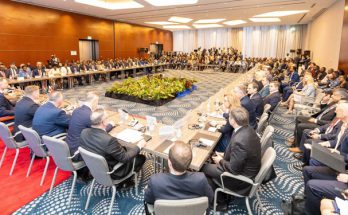
Germany will push the European Union to open its markets to Africa this week, as it uses its presidency of the G20 to spearhead another push for growth on the continent.
IMF president Christine Lagarde and Jim Yong Kim, president of the World Bank as well as executives from Bosch and Siemens, Allianz CEO Oliver Bäte, and Timotheus Höttges, chief executive of Deutsche Telekom will take part in a G20 offshoot, the B20, Monday and Tuesday in Berlin.
Each of the G20 countries have partnered with some African ones: Germany has Ghana, Tunisia and Ivory Coast.
The aim is to adopt a carrot and stick approach, offering African countries aid, investment and advice in return for pledges to cut corruption and create a secure environment for foreign investors.
Africa receives $50 billion in direct foreign investment annually, compared to $120 billion for Asia. Half of that goes to just five countries: Angola, Egypt, Mozambique, Ghana and Morocco.
The German business federations BDI has long argued that Germany’s development policies are uncoordinated and indeed last week Ms. Merkel ordered government departments to amalgamate their different development plans to form one coherent strategy.
German private investment in the 55 African countries is still low – they accounted for just 3 percent of German foreign investment in the last decade. The UK, China, France and the United States have far more substantial investments. A B20 survey showed that more than half of German businesses regarded corruption, obscure regulations and political conflicts as hurdles to investment in Africa.
But now things are set to change. The German government has promised to give companies investing in Africa the kind of export guarantees it gives to many other parts of the world, underwriting the risk of doing business abroad. This involves reworking the guarantees that come from Hermes, the official German export credit insurance agency. At the moment companies have to supply 10 percent of financing for African guarantees, twice as much as in other emerging markets.




